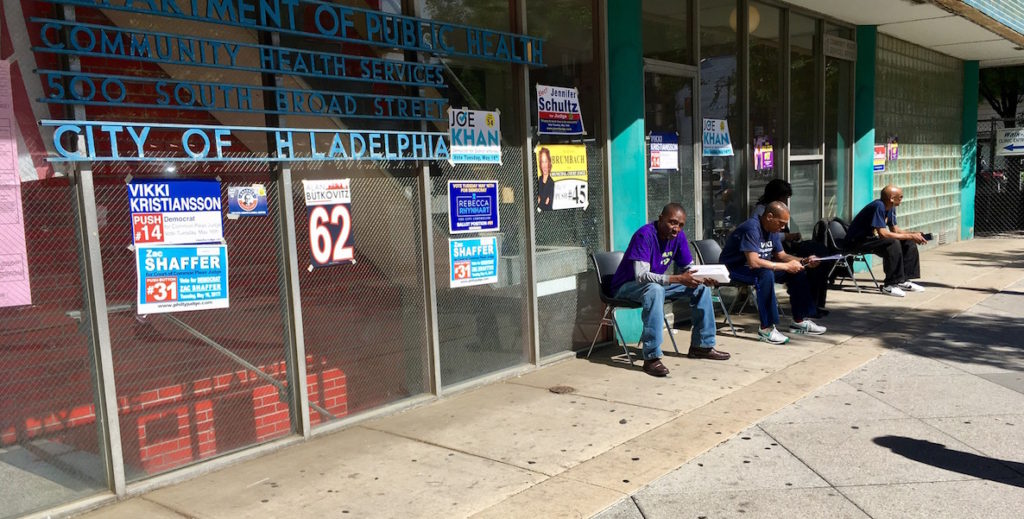The Citizen will publish guest articles, like this one, that add to the local civic discussion. To submit, click here.
A consensus appears to be emerging that our one-party town can no longer afford an undemocratic Democratic Party. Some of the new committee persons, who were elected in 2014, were horrified when they discovered what goes on in their wards:
- Dictatorial ward leaders who think that democracy begins and ends with the ward leader election.
- No vote on endorsements, and in some cases not even finding out who will be on their ward ballot until Election Day.
- No activity in the ward prior to Election Day—certainly part of the explanation for the depressingly low level of turnout in so many wards.
- Spots on sample ballots sold to the highest bidder.
Many young activists saw a corrupt, moribund organization with no respect for its own rules, and too many ward leaders who viewed elections as a business opportunity.

Increasingly, the local media have been addressing the shortcomings of the Philadelphia Democratic Party. In her Philadelphia magazine article “Why Is Bob Brady Still in Charge?” Holly Otterbein noted, if voters want change, “Now is the perfect time: Voters can infiltrate the Democratic machine during the 2018 primaries for committee people. These foot soldiers elect the city’s ward leaders, who in turn elect the party’s chairman.”
Even former Governor Rendell has weighed in on the state of the Philadelphia Democratic Party. In a recent interview with City and State, “Rendell to Brady: Curb power of ward leaders to fix Philly” Rendell proposed that committee people vote on candidate endorsements rather than letting the ward leader make the decision. (Currently committee people vote on all endorsements in only 5 out of 69 wards.) Rendell also suggested a return to election of committee people every two years instead of every four years, to provide more opportunities for new people to become involved in the ward system.
Rendell’s suggestion of returning to two-year terms for committee persons is gaining traction. It could accelerate the process of making the Democratic Party more democratic, more transparent, and more responsive to a younger generation.
I was a committee person back in the day when we ran every two years and it worked quite well. Bob Brady changed the system in the early 1990s to ensure that his power base was stable for four-year periods. This change increased the power of the party apparatus: When committee people have to resign mid-term, the ward leader—not the voters—chooses the person to fill out the remainder of the term.
The current fragmentation of the party into neighborhood machines as well as the tendency of many ward leaders to make their own private deals with candidates suggests the time is ripe for change. Both the fragmentation and the inevitable generational change provide a real opportunity for political change.
The two-year cycle would make it much easier to get new people involved. I have met young people who are interested in running for committee person but when they learn they will have to wait three to four years for the next opportunity, they frequently lose interest. It’s ridiculous that state and congressional representatives have to face the voters every two years and committee people every four years.
Also, whenever an elected committee person moves out of her division, she must resign. This is particularly problematic with younger committee people who are more likely to be renters. If a committee person elected in 2014 moves in 2015, she is locked out of the ward structure until the next committee person election in 2018. If elections were every two years she would have had the opportunity to run in her new division in 2016 rather than wait until 2018. Although there are many much needed changes in the way the Democratic Party operates, a return to two year terms might make the greatest difference in reinvigorating the party.
The 2017 primary election underscores the weakness of the current machine (or more accurately constellation of mini-machines). The party did not make an official endorsement in the District Attorney’s race, but individual ward leaders were on record as backing particular candidates. However, Larry Krasner’s victory, sweeping 47 of 69 wards, indicates either that the ward leaders changed their minds, or did not work very hard for their endorsed candidate or that their voters simply ignored their recommendation.
Incumbent Alan Butkovitz was the endorsed candidate for City Controller in what was supposed to be a ward leader’s election—that is, a low profile contest where the voters generally vote for the candidate endorsed by the party. However, challenger Rebecca Rynhart handily defeated the three term incumbent and won 51 of 69 wards.
Prior to the 2017 primary election, journalist Malcolm Burnley speculated that this might be the election in which millennial voters finally flex their collective muscle. We don’t as yet have the information about the percentage of young voters, but given the high turnout in wards with high concentrations of millenials, it appears this might be the case. The results of the 2017 primary may be a combination of young voters coming out in larger numbers and many ward leaders defecting from the party endorsement for controller.
Rendell’s suggestion of returning to two-year terms for committee persons is gaining traction. It could accelerate the process of making the Democratic Party more democratic, more transparent, and more responsive to a younger generation.
Interestingly in an interview with Dave Davies, Party Chair Bob Brady blamed Alan Butkovitz’s defeat on higher turnout in the “liberal wards” and not on his ward leaders’ defections from the official party ballot. However, the magnitude of Butkovitz’s loss suggests that Brady is in denial about the breakdown of party discipline. This breakdown has been going on for some time. In the 2015 municipal elections, a pattern of ward leader defections occurred in the race for Council at large and has been going on for some time in judicial races in which ward leaders make their own (often lucrative) deals with individual candidates.
The current fragmentation of the party into neighborhood machines as well as the tendency of many ward leaders to make their own private deals with candidates suggests the time is ripe for change. Also, many incumbent committee people and ward leaders are in their 60s, 70s and 80s. Both the fragmentation and the inevitable generational change provide a real opportunity for political change. Change is coming to the Philadelphia Democratic Party.
Karen Bojar, an Emeritus Community College of Philadelphia professor and past president of the Philadelphia Chapter of the National Organization for Women, has been a committeeperson in the city’s 9th ward for the past 31 years. She is the author of a new book, Green Shoots of Democracy in the Philadelphia Democratic Party.

